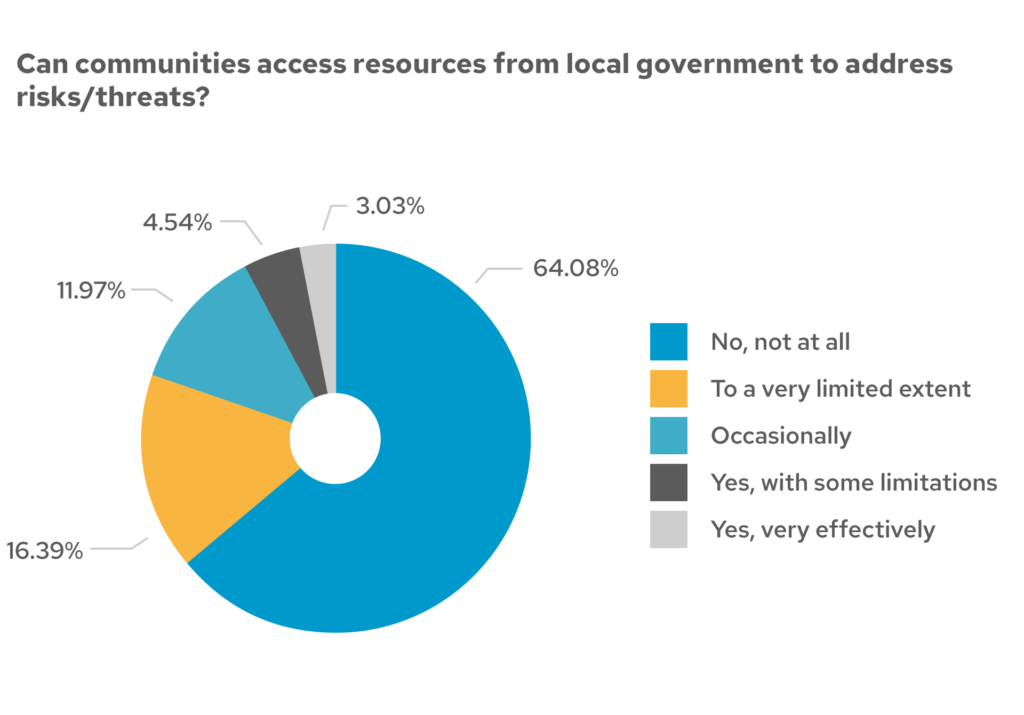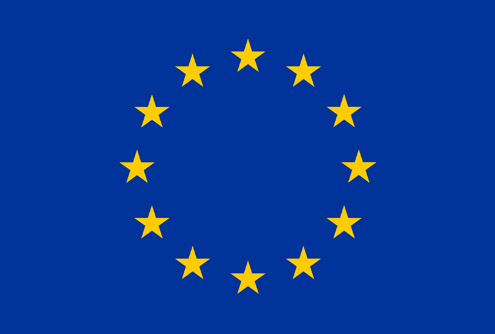VIEWS FROM THE FRONTLINE
Egypt
We’re working with 15 communities in Egypt to ensure that development is informed by the perspectives of people most at risk.
As part of our global Views from the Frontline programme we have surveyed community members, civil society organisations and government representatives across the country. Here we present our key findings, conclusions, activities and impact.
Random household surveys
Civil society surveys
Local government surveys
Key findings and conclusions at the national level
- There is lack of communication between community members and local government units/officials, which may be because the designated office for addressing risks and threats isn’t working to its full potential
- Community members are excluded from engagement process by the government, in particular assessment, planning, implementation and knowledge-sharing processes
- Communities have limited access to resources and data, meaning there isn’t an enabling environment for inclusion

Surveys undertaken in Egypt
Our Views from the Frontline surveys in Uganda were undertaken in 2019.
Who was surveyed?
We surveyed 1,722 random households, 150 civil society organisations, 151 local government representatives, and undertook 75 community consultations.
Risk locations prioritised
We prioritised three risk areas:
- Kafr Al-Shaikh
- Greater Cairo
- Fayoum
Communities surveyed
We surveyed people from 15 communities: Dahshour, Abu Za’bal Village, Al Khosoos City, Ezbet Al-Nasr, Ezbet Khair Allah, Kafr Al-Shaikh City, Sidi Salem Centre, Al-Qan Village, Haroun Village, Al-Baz Village, Shakshouk Village, Youssef Al-Sidiq Centre, Tamyah Centre, Tunis Village and Snorus.
“We generally suffer from a lack of awareness regarding the importance of keeping our community clean. There’s also a lack of awareness about the importance of wearing face masks for our protection against the Coronavirus.”
Community representative, Snorus, Fayoum
Our impact
Activities undertaken in response to community-level findings and conclusions
- Raising awareness and building the capacities of women by providing training on traditional handicrafts and providing sewing machines to women to generate a sustainable income
- Resolving waste management issues by removing waste and replacing areas with grassland
- Conducting environment awareness campaigns
- Buying and installing new medical equipment in the village health unit that serves women and children, in order to improve health services
- Conducting training for doctors and nurses on using new medical equipment
Impact of activities
- The engagement of communities in economic empowerment activities has lead to improvements in their standard of living – and will increase their resilience against disasters and climate change
- Community members are now involved in the assessment, planning, implementation, and monitoring of risk reduction plans and disaster management activities
- The capacities of community leaders, including women and youth, have been strengthened, providing them with the necessary skills to find jobs and reduce their vulnerability
Our project partners in Egypt
Our Views from the Frontline programme is implemented by GNDR member organisations and partners in the country.
National coordinating organisation
- The Arab Network for Environment and Development
Partner organisations
- Nile River National Forum
- Al Nahda NGO for Agricultural Development
- Environmental Protection Association in Fayoum
View all data from Egypt
You can view all our Views from the Frontline survey data using our data dashboard. You can also learn more about our methodology for selecting at-risk areas and survey respondents.
Project funded by
European Union

Our Views from the Frontline project is funded by the European Union (EU). Content related to this project on our website was made possible by the support of the EU. All content is the sole responsibility of GNDR and does not necessarily reflect the views of the EU.
View their websitePhoto credit
Image by Marco Federmann from Pixabay.